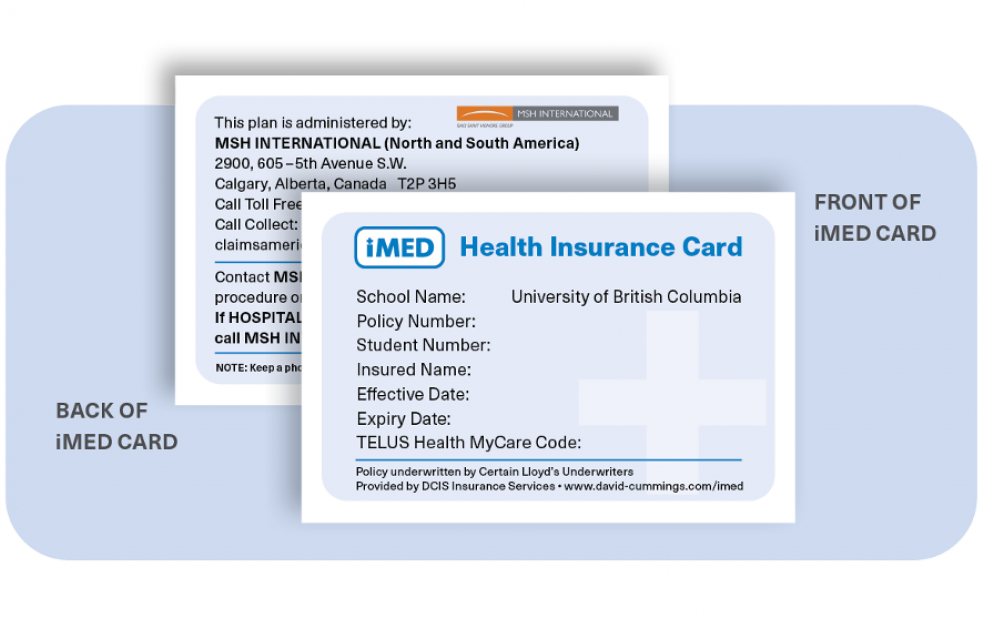How do I use my iMED insurance?
iMED covers emergency hospitalization and medical services, including treatment at a doctor’s clinic, for an unexpected sickness or injury. While David Cummings Insurance Services is the company that handles iMED enrolment and general support, MSH International handles claims and requests for pre-authorization of medical services.
Visit the iMED website to review the iMED policy for details of coverage, to learn how and when to contact MSH International, and how to submit claims.
Accessing health care services
Students covered under iMED may seek medical care at any licensed medical clinic or hospital. Medical expenses that are eligible under the iMED policy can be submitted to MSH International either directly by the medical facility, or by you. Billing for treatment at a hospital is almost always issued after you are discharged from the hospital (when you have finished treatment), while you will likely be asked to pay up-front for doctor consultations.
If you need care at a hospital, you should always show your iMED card and your study permit (if applicable) when you are being admitted and ask if the hospital will agree to bill expenses to MSH International. You must also notify MSH International immediately using the contacts on your iMED card.
Important tips
If you are hospitalized, you, or someone on your behalf, must contact MSH International immediately using the contact information on your iMED card.
Certain medical services require pre-authorization from MSH International. Examples include surgery, specialist consultation, and specialized diagnostic tests like an MRI or CT scan.
Carry a photocopy or digital copy of your study permit during your iMED policy, if you have one, because you must present a copy of your study permit with your iMED card if you are treated at a hospital to ensure you are billed fees as a resident of BC.
You don’t have to hold a study permit to use your iMED plan. If you or your dependents are in Canada as a visitor or worker and you or your dependents are enrolled in iMED, bring your iMED card, photo ID, and any immigration documents you have when seeking medical services.
Visit the iMED website to learn more about accessing health care.
Direct billing
Several health care providers, including some emergency departments, near the Vancouver and Okanagan campuses recognize iMED health insurance and will bill eligible medical expenses directly to MSH International, meaning you could have fewer or even no up-front medical costs to pay out of pocket. To access one of these “direct billing” facilities, you will need to show your iMED card, a piece of photo identification, and your study permit (if applicable).
If the reason you seek medical attention is not covered under the iMED policy, or if the clinic or pharmacy is unable to confirm the eligibility of the medical service you seek, you may be required to pay the clinic or pharmacy up front. In that case, you can still submit a claim to MSH International to determine if your expense is eligible for coverage. Visit the Claims page of the iMED website to learn how to submit claims.
When a hospital or emergency clinic fee is billed directly to your iMED insurance, you may still be billed separately for related medical services, such as for ambulance fees, laboratory tests, prescription medication, or specialist fees. If you are issued a medical bill, be sure to submit it promptly to MSH International with a claim form.
You can show your iMED card for direct billing to MSH at the following medical clinics, emergency departments, and pharmacies:
Direct billing on-campus
OKANAGAN CAMPUS
VANCOUVER CAMPUS
Direct billing off-campus
OKANAGAN
VANCOUVER
Map of iMED direct billing locations on- and off-campus
Back to top
